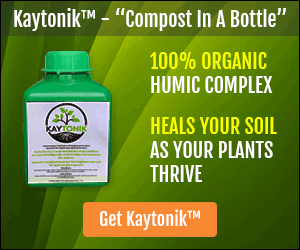What is aeroponics?
Aeroponics is a method of growing plants without soil with a bit of water. In this system, plants are suspended in the air. The plants regularly receive a mist of nutrient-rich water mix solution. The aeroponics system is a closed system, so the water that the plants do not take is recycled. This technique makes excellent use of space as crops are grown in vertical towers or horizontal boards.
The tiny seeds are planted in foam or Rockwool cubes, and once they germinate, they can be transplanted into the aeroponics system.
Who discovered aeroponics?
According to Wikipedia, the first person to talk about what will later be known as aeroponics was V.M. Artsikhovski, who published an article in the Journal Experienced Agronomy in 1911. The system continues to be studied and developed in labs without much attraction in the commercial environment.
In 1957, F. W. Went coined the term aeroponics, growing coffee and tomatoes plants, using nutrient-rich mist to feed the roots.
It was only in the ‘80s that it was incorporated in farming. GTi manufactured the first aeroponics system known as the Genesis Machine.
What is the difference between hydroponics and aeroponics?
There are some key differences between these two methods and some similarities. Although some people get mixed thinking that both systems are the same, the only similarity is that both offer an alternative to grow without soil.
In a hydroponic system, plants are in water all the time, and a constant flow of water brings nutrients to the roots.
In an aeroponic system, plants are suspended in the air and receive the nutrients from a mist that is sprayed directly onto their roots.
Living green farm’s blog explains, "Aeroponic farms are completely controlled and enclosed environments, with crops growing suspended in air. The plants are contained in a humid atmosphere where frequent misting delivers a nutrient rich solution right to the roots, keeping the crop from drying out. Because the entire process is enclosed, the mist is able to remain around the plants for longer, helping them grow much quicker than in a traditional outdoor farm."
Being a closed system gives the advantage that it is a 100% controlled environment. Plants have a minimal chance of encountering disease or pests.
What can you grow with aeroponics?
There are so many options. If you do a quick search online, you will come up with several lists. Here are the top favourites:
Green leaf – all of them work very well.
Herbs – are also easy to grow, and you will benefit from all year harvest.
Some fruits – the most common one is strawberries, tomatoes (determinate ones are the best).
You can try other vegetables, such as broccoli, peas, and bean. The key is to provide the plant with the right nutrients and support it may need to grow.
Aeroponics systems are great for indoor growing or when you don’t have a garden.















